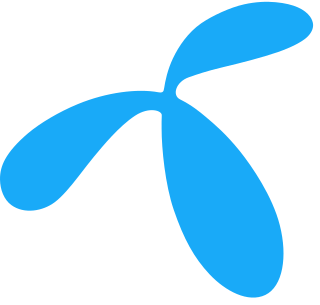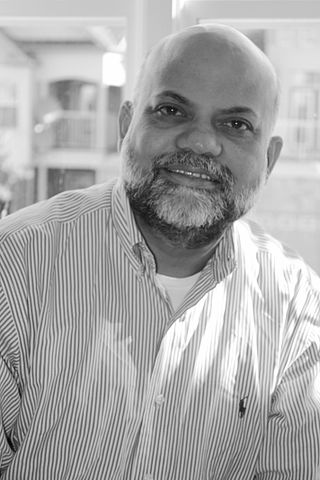Nepal's telecommunication network has increased over the years significantly, with the number of telephone users reaching 40,789,198 as of 14 May 2019.

The telecommunications in Russia has undergone significant changes since the 1980s, radio was a major new technology in the 1920s, when the Communists had recently come to power. Soviet authorities realized that the "ham" operator was highly individualistic and encouraged private initiative – too much so for the totalitarian regime. Criminal penalties were imposed but the working solution was to avoid broadcasting over the air. Instead radio programs were transmitted by copper wire, using a hub and spoke system, to loudspeakers in approved listening stations, such as the "Red" corner of a factory. This resulted in thousands of companies licensed to offer communication services today. Due to the enormous size of the country Russia today, the country leads in the number of TV broadcast stations and repeaters. The foundation for liberalization of broadcasting was laid by the decree signed by the President of the USSR in 1990. Telecommunication is mainly regulated through the Federal Law "On Communications" and the Federal Law "On Mass Media"

The telecom sector in Bangladesh is rapidly emerging. Bangladesh Telecommunication Regulatory Commission (BTRC) is the regulatory authority for this sector, overseeing licensing, policy, etc.

Microcredit is the extension of very small loans (microloans) to impoverished borrowers who typically lack collateral, steady employment, and a verifiable credit history. It is designed to support entrepreneurship and alleviate poverty. Many recipients are illiterate, and therefore unable to complete paperwork required to get conventional loans. As of 2009 an estimated 74 million people held microloans that totaled US$38 billion. Grameen Bank reports that repayment success rates are between 95 and 98 percent. The first economist who had invented the idea of micro loans was Jonathan Swift in the 1720’s. Microcredit is part of microfinance, which provides a wider range of financial services, especially savings accounts, to the poor. Modern microcredit is generally considered to have originated with the Grameen Bank founded in Bangladesh in 1983. Many traditional banks subsequently introduced microcredit despite initial misgivings. The United Nations declared 2005 the International Year of Microcredit. As of 2012, microcredit is widely used in developing countries and is presented as having "enormous potential as a tool for poverty alleviation." Microcredit is a tool that can possibly be helpful to reduce feminization of poverty in developing countries.

China Mobile is the trade name of both China Mobile Limited and its ultimate controlling shareholder, China Mobile Communications Group Co., Ltd., is a Chinese state-owned telecommunications company. It provides mobile voice and multimedia services through its nationwide mobile telecommunications network across mainland China and Hong Kong. China Mobile is the largest wireless carrier in China, with 945.50 million subscribers as of June 2021. China Mobile was ranked #25 in Forbes' Global 2000 in 2023.

Grameen Bank is a microfinance specialized community development bank founded in Bangladesh. It makes small loans to the impoverished without requiring collateral.

Muhammad Yunus (born 28 June 1940) is a Bangladeshi entrepreneur, banker, economist and civil society leader. Yunus was awarded the Nobel Peace Prize in 2006 for founding the Grameen Bank and pioneering the concepts of microcredit and microfinance. Yunus has received several other national and international honours, including from the US. He received the United States Presidential Medal of Freedom in 2009, and the Congressional Gold Medal in 2010. Yunus is one of just seven individuals who have been awarded the Nobel Peace Prize, the United States Presidential Medal of Freedom, and the United States Congressional Gold Medal. After the resignation of Sheikh Hasina, he is assuming office as the Chief Advisor to the interim government of the People's Republic of Bangladesh on 8 August 2024.
Rogers Wireless Inc. is a Canadian wireless telephone company headquartered in Toronto, providing service nationally throughout Canada. It is a wholly owned subsidiary of Rogers Communications. The company had revenues of just under $15.1 billion in 2018. Rogers Wireless is the largest wireless carrier in Canada, with 13.7 million subscribers as of Q2 2023.

Kyivstar is a Ukrainian telecommunications company, providing communication services and data transmission based on a broad range of fixed and mobile technologies, including 4G (LTE) services, in Ukraine.

Grameenphone, widely abbreviated as (d/b/a) GP, is a telecommunications service provider in Bangladesh. As of December 2023, its subscribers span over 82.20 million. It is a joint venture between Telenor and Grameen Telecom. Where Telenor owns a 55.8% share of Grameenphone, Grameen Telecom owns 34.2% and the remaining 10% is publicly held.
Grameen Foundation, founded as Grameen Foundation USA, also known as "GFUSA", is a global 501(c)(3) non-profit organization based in Washington, DC, that uses digital technology and data to understand very poor people, in detail, and offer them—and the entire ecosystem of agencies and actors surrounding them—empowering tools that meet and elevate their everyday realities. Its CEO is Zubaida Bai. Grameen Foundation's mission is, "To enable the poor, especially women, to create a world without poverty and hunger." According to the OECD, Grameen Foundation’s financing for 2019 development increased by 33% to US$45.5 million.

Mobilink was the trade name of Pakistan Mobile Communications Limited (PMCL), a mobile operator in Pakistan providing a range of prepaid and postpaid voice and data telecommunication services to both individual and corporate subscribers. In 2017, Warid Pakistan merged with Mobilink to form Jazz, under which the company now operates. Mobilink's head office was in Islamabad, and its last president and CEO was Aamir Ibrahim, who became the CEO of Jazz.
The telecommunications industry in China is dominated by three state-run businesses: China Telecom, China Unicom and China Mobile. The three companies were formed by restructuring launched in May 2008, directed by the Ministry of Information Industry (MII), National Development and Reform Commission (NDRC) and the Minister of Finance. Since then, all three companies gained nationwide fixed-line and cellular mobile telecom licenses in China. In 2019, all three telecoms were issued 5G national licenses.

Bharti Airtel Limited, commonly known as Airtel, is an Indian multinational telecommunications services company based in New Delhi. It operates in 18 countries across South Asia and Africa, as well as the Channel Islands. Currently, Airtel provides 5G, 4G and LTE Advanced services throughout India. Currently offered services include fixed-line broadband, and voice services depending upon the country of operation. Airtel had also rolled out its Voice over LTE (VoLTE) technology across all Indian telecom circles. It is the second largest mobile network operator in India and the second largest mobile network operator in the world. Airtel was named India's 2nd most valuable brand in the first ever Brandz ranking by Millward Brown and WPP plc.

Banker to the Poor: Micro-Lending and the Battle Against World Poverty is an autobiography of 2006 Nobel Peace Prize Winner and Grameen Bank founder Muhammad Yunus. The book describes Yunus' early life, moving into his college years, and into his years as a professor at Chittagong University. While a professor at Chittagong University, Yunus began to take notice of the extreme poverty of the villagers around him. In 1976, Yunus incorporated the help of Maimuna Begum to collect data of people in Jobra who were living in poverty. Most of these impoverished people would take a loan from moneylenders to buy some raw material, using that raw material to create some product, and then selling back the good to the moneylender to repay the loan, earning a very meager profit. One woman interviewed made no more than two cents per day creating bamboo stools using this system. The list Begum brought back to Yunus named 42 women who were living on credit of 856 taka.

Iqbal Z. Quadir is an entrepreneur and promoter of the role of entrepreneurship and innovation in creating prosperity in low-income countries. He has taught at Harvard Kennedy School and at Massachusetts Institute of Technology. He is the brother of Bangladeshi-American entrepreneur and artist Kamal Quadir.

The Grameen family of organizations has grown beyond Grameen Bank into a multi-faceted group of both commercial and non-profit ventures. It was first established by Muhammad Yunus, the Nobel Peace Prize-winning founder of Grameen Bank. Most of the organizations in the Grameen group have central offices at the Grameen Bank Complex in Mirpur, Dhaka, Bangladesh. The Grameen Bank started to diversify in the late 1980s when it began attending to unutilized or underutilized fishing ponds, as well as irrigation pumps like deep tubewells. In 1989, these diversified interests started growing into separate organizations, as the fisheries project became Grameen Fisheries Foundation and the irrigation project became Grameen Krishi Foundation.

Kamal Quadir is a Bangladeshi American entrepreneur and artist best known for introducing e-commerce in Bangladesh by founding CellBazaar, an electronic marketplace which, after reaching 4 million users, was acquired by Norwegian telecommunications operator Telenor in 2010. CellBazaar later was rebranded as ekhanei.com. He is the brother of Iqbal Quadir, who is an entrepreneur and promoter of the role of entrepreneurship and innovation in creating prosperity in low-income countries.
3G mobile telephony was relatively slow to be adopted globally. In some instances, 3G networks do not use the same radio frequencies as 2G so mobile operators must build entirely new networks and license entirely new frequencies, especially so to achieve high data transmission rates. Other delays were due to the expenses of upgrading transmission hardware, especially for UMTS, whose deployment required the replacement of most broadcast towers. Due to these issues and difficulties with deployment, many carriers delayed acquisition of these updated capabilities.













